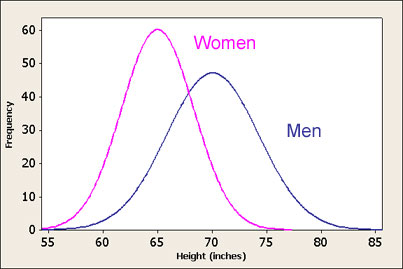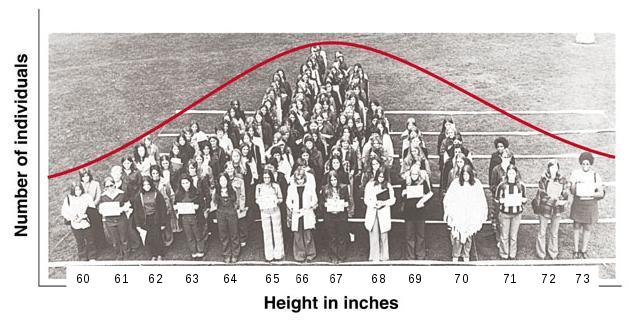Table of Contents
1. General Overview
The g factor (also known as the general intelligence factor or general mental ability) is a construct developed in psycho-metric investigations of cognitive abilities. The g-factor is the overarching variable that is theorised to explain the positive correlations between a range of cognitive tasks. For instance, individuals' performance on one type of cognitive task (such as word puzzles) correlates with that person's performance on other kinds of cognitive tasks (such as math problems). Although each task involves using different skills, they both rely on a general intelligence factor.
Composite scores ("IQ scores") are based on many tests and are estimates of an individual's standing on the g-factor. Hereafter we will refer to the g-factor by IQ scores.
See the two diagrams below for the sorts of cognitive abilities which are all separate but all dependent on one's IQ:
Strength of correlation between each cognitive ability and IQ:
It is also crucial to note that "Vocabulary" is its own subtest in IQ testing. Verbal IQ scores measure acquired knowledge, verbal reasoning, comprehension and attention to verbal nuances.
- analogies (e.g., lawyer is to client as doctor is to ___.)
- classifications (e.g., Which word does not belong with the others? robin, sparrow, chicken, blue jay)
- and series completions (e.g., What number comes next in the following series? 3, 6, 10, 15, 21,__).
Crystallised and Fluid IQ
"Crystallised IQ" tests are often used alongside "fluid IQ" tests to estimate the g-factor.
Fluid intelligence is the ability to solve novel reasoning problems and is correlated with a number of important skills such as comprehension, problem-solving, and learning capacity.
Crystallized intelligence, on the other hand, is regarded as the result, or application, of fluid intelligence. A useful analogy is to think of fluid intelligence as one's skillfulness/aptitude at writing computer programs (i.e., to create knowledge) and crystallised intelligence is the computer programs (i.e., the quality, depth, breadth and logical consistency of one's knowledge).
Going back to vocabulary, testing one's current understanding of words is a measure of crystallised intelligence. Giving people new words and testing how well they master these new words is a measure of fluid intelligence.
Another example of the application of fluid versus crystallised intelligence is often seen in mathematics. The "smart kid" in high school might easily solve the following problem without having learnt anything prior:
Mary is twice as old as her sister Rita who is eight years old. How old is Rita when Mary is thirty two years old?
Whereas the "studios-but-not-smart" kid can use the algebra they've learnt to solve the problem:
Mary's age = 2 * Rita's Age = 16
[...]
Thus, if M=32: R=32-8 = 24
However, the studious kid would struggle to reason through this problem without the assistance of formulas, pen and paper to keep track of the working. Thus pen-and-paper is used as a necessary cognitive aid for the studious types with lower cognitive capacities.
Real-World Achievements and IQ
Academic Achievement
"The predictive validity of g is most conspicuous in the domain of scholastic performance"
(i.e., IQ matters the most in one's academic performance). This is because g is closely linked to the ability to learn novel material and understand concepts and meanings.
However, even within the academic world, IQ matters for some subjects more than others. See the meta-analysis:
"Concerning the moderating effect of the subject domains, our analyses showed that the mean corrected correlation between scores of intelligence tests and school grades was highest in the Mathematics and Science subgroup (ρ = .50).
[...]
Nevertheless, the mean corrected correlation between intelligence and school grades in Language (ρ = .42) and Social Sciences (ρ = .43) still is rather high, which indicates that cognitive ability is a substantial prerequisite for scholastic success in these subjects.
[...]
[There is also] a corrected mean correlation (ρ = .29) between [music\arts and IQ] which is in line with the literature suggesting a relationship between musicality and intelligence (e.g., Schellenberg, 2005) as well as creativity and intelligence (Batey & Furnham, 2006).
[...]
Lastly, there is no correlation found between IQ and performance in sports (physical activity) at school."
[...]
This finding appears to be rather straightforward since mathematics and science are subjects that deal with content that relies heavily on logic. As logical thinking is the most dominant competence assessed by intelligence tests, persons with higher tests scores should understand the content of these subject domains better and thus have better grades. A second explanation involves the reliability of school grades in these subjects. As answers in written exams in mathematics and science can easily be evaluated as right or wrong there is no margin of judgment [i.e., error] for the teachers when giving the grades. Thus, the reliability of grades in these school subjects should be higher than in the other school subjects where there is clearly a wider margin of judgment, which in turn influences the height of the correlation which can be achieved maximally.
[...]
[The above findings] and the finding that the mean corrected validities are lower [in subjects such as language and art] than in the Mathematics and Science subgroup can be explained by the fact that successful participation in [languages and arts] subjects requires learning content (e.g. historical data) by heart. Thus, motivational aspects play a more important role in these subjects than in the Mathematics and Science subgroup where it is predominantly important to understand the content.
So it is unsurprising to see results such as these:
(Note that SAT correlates strongly with IQ)
You might notice two things from that last table. Most obviously is that subjects that rely on understanding complex abstraction are at the top. But not self-evident is that subjects that rely on a wider range of skills have a stronger correlation with IQ than subjects that rely only on mathematics or only on writing. Both physics and philosophy necessitate understanding and reasoning through writing as well as mathematically/symbolically.
This makes sense when we think back to IQ being the overarching factor responsible for improved performance across domains. Even though mathematics relies heavily on IQ, mathematics also relies on natural talent for, and interest in, quantitative abstractions. To reduce the latter variable (the noise), IQ tests also measure proficiency in language. Hence, a mix of mathematics, reasoning and complex language in physics makes it a good estimator of IQ.
What is the general IQ of university students?
One dataset with the mean for bachelor's Master's and PhD/LLD/MD:
Bachelor’s degree 113 (81st percentile)
Master’s degree 117 (87th percentile)
PhD, LLD, MD 128 (97th percentile)
A different source of data with a box plot. First, learn how the box plot works:
The jump from Bachelor's to Master's is unsurprising, but the far bigger difference between a Master's and a PhD is surprising to most people. See why that is:
"The focus of master's degrees and doctorate degrees is different. A master's degree is designed to deepen career-oriented knowledge and skills. A doctorate degree is a heavily research-based degree, designed to develop critical research, analytical and writing skills in an effort to fill industry knowledge gaps."
"They’re very different. Getting a Master’s is not all that different from getting a Bachelor’s. The work is at a higher level, obviously, but it’s still mostly classwork. The thesis is like an extended term paper. If you do well as an undergrad, take the same study habits you develop there and apply them to your Master’s studies, and you’ll do fine."
"Doing the Ph.D. was about learning to think differently. There’s often additional seminar coursework, but that’s about learning / honing critical thinking. If one is going to do solid research, one needs to know how to read the work in the field and to figure out what’s valuable and what’s not. Additionally, if one knows how to properly evaluate research, one is better prepared to design and evaluate their own work.
Finally, there’s the dissertation, which is about learning how to refine a research problem, how to design a course of action to test the hypothesis / hypotheses, and then evaluating the results.
Elements of all of that should be taught even in primary school, but being able to do that independently and well for large problems is what a PhD is training for. For everyone with whom I’ve discussed their PhD process, that required learning to think differently."
Occupational Achievement
See graphs for the mean IQ for different jobs.
Crucial Distinction Between IQ and Personality
Intellect | |
10-item scale (Alpha = .84) | |
+ High | Am quick to understand things. |
Can handle a lot of information. | |
Readily solve complex problems. | |
Have a rich vocabulary. | |
Think quickly. | |
Formulate ideas clearly. | |
– Low | Have difficulty understanding abstract ideas. |
Avoid philosophical discussions. | |
Avoid difficult reading material. | |
Learn things slowly. |
The Savanna-IQ Interaction Hypothesis--things to look for in personality!
Size of ideas and sentences to show how much their brain-computing-power can handle--working memory!
How to estimate:
Percentile i.e., smarter than how many in 1,000? Consider that it's a randomly-selected sample that might include very gifted people as well as people who struggled to even graduate high school.
Consider that someone with average/normal intelligence is at the 50th percentile, i.e. scores higher than about 500 in 1,000--half of all people. But also scores lower than about 500 in 1,000.
https://www.smartkidswithld.org/first-steps/evaluating-your-child/understanding-iq-test-scores/
https://en.wikipedia.org/wiki/IQ_classification
https://www.verywellmind.com/what-is-a-genius-iq-score-2795585
https://psychology.fandom.com/wiki/IQ_classification
IQ number (I guess 120 lol)
Normal distribution standing WITHOUT IQ or percentile labelling as not to bias them.












